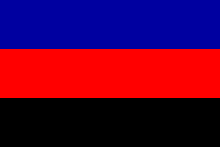Carbonarism
 |
|
| Formation | early 1800s |
|---|---|
| Type | Conspiratorial organisation |
| Purpose | Italian unification |
| Location | |
|
Key people
|
Gabriele Rossetti Napoléon Louis Bonaparte Giuseppe Garibaldi Silvio Pellico Aurelio Saffi Antonio Panizzi Giuseppe Mazzini Ciro Menotti Melchiorre Gioia Piero Maroncelli |
The Carbonari (Italian for "charcoal makers") was an informal network of secret revolutionary societies active in Italy from about 1800 to 1831. The Italian Carbonari may have further influenced other revolutionary groups in France, Spain, Portugal, and Russia. Although their goals often had a patriotic and liberal basis, they lacked a clear immediate political agenda. They were a focus for those unhappy with the repressive political situation in Italy following 1815, especially in the south of the Italian Peninsula. Members of the Carbonari, and those influenced by them took part in important events in the process of Italian unification (called the Risorgimento), especially the failed Revolution of 1820, and in the further development of Italian nationalism. The chief purpose was to defeat tyranny and to establish constitutional government. Though contributing some service to the cause of Italian unity, historians such as Cornelia Shiver doubt that their achievements were proportional to their pretensions. In the north of Italy other groups, such as the Adelfia and the Filadelfia, were more important.
The Carbonari were a secret society divided into small covert cells scattered across Italy. Although agendas varied, evidence suggests that despite regional variations, most of the membership agreed upon the creation of a liberal, unified Italy. The Carbonari were anti-clerical in both their philosophy and programme. The Papal constitution Ecclesiam a Jesu Christo and the encyclical Qui pluribus were directed against them. The controversial document Alta Vendita, which called for a liberal or modernist takeover of the Catholic Church, was attributed to the Sicilian Carbonari.
Although it is not clear where they were originally established, they first came to prominence in the Kingdom of Naples during the Napoleonic wars. Although some of the society's documents claimed that it had origins in medieval France, and that its progenitors were under the sponsorship of Francis I of France during the sixteenth century, this claim can not be verified by outside sources. Although a plethora of theories have been advanced as to the origins of the Carbonari, the organization most likely emerged as an offshoot of Freemasonry, as part of the spread of liberal ideas from the French Revolution. They first became influential in the Kingdom of Naples (under the control of Joachim Murat) and in the Papal States, the most resistant opposition to the Risorgimento. The Carbonari were probably an offshoot of the Freemasons, from whom they differed in important particulars, and first began to assume importance in southern Italy during the Napoleonic wars.
...
Wikipedia
